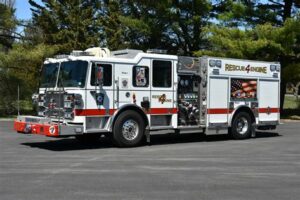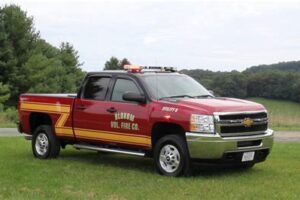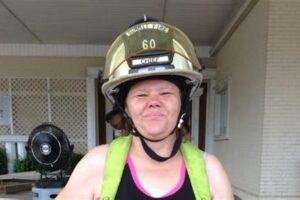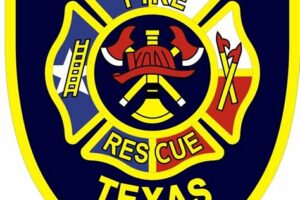Table of Contents
Looking to make a difference in your community? Become a fire volunteer and join the dedicated team of individuals who work tirelessly to protect lives and property. Gain valuable skills, contribute to public safety, and be part of an incredible support network. Find out how you can become a fire volunteer today!
Fire volunteers play a critical role in protecting our communities and saving lives. With their unwavering commitment and selflessness, these brave individuals step up in times of crisis, willingly putting themselves in harm’s way to ensure the safety of others. Whether it’s battling raging infernos, rescuing stranded individuals, or providing much-needed support during emergencies, fire volunteers are the unsung heroes who embody the spirit of community service. In this fast-paced world where every second counts, their dedication and quick response can make all the difference between life and death. So, let’s delve deeper into the world of fire volunteers and explore the remarkable work they do on a daily basis.
A Noble Calling: The Life of a Fire Volunteer
Every day, countless men and women put their lives on the line to protect and serve their communities. Among them are the unsung heroes known as fire volunteers. These dedicated individuals display an unwavering commitment to public safety, often sacrificing their time and personal well-being for the greater good. In this article, we delve into the world of fire volunteers, exploring their vital role, the challenges they face, and the immense impact they have on the communities they serve.
What is a Fire Volunteer?
A fire volunteer is an individual who selflessly offers their services to a fire department without receiving monetary compensation. These volunteers undergo rigorous training to become certified firefighters and perform a variety of tasks, including firefighting, rescue operations, and emergency medical assistance. They work alongside professional firefighters to combat fires, provide relief during natural disasters, and offer support in other emergency situations.
The Training Process
Before joining the ranks of a fire department, volunteers must complete an extensive training program. This training covers various aspects of firefighting, such as fire behavior, equipment usage, search and rescue techniques, and first aid. Volunteers also learn about hazardous materials handling, incident command systems, and how to operate specialized firefighting apparatus. This comprehensive training ensures that fire volunteers are equipped with the knowledge and skills necessary to tackle any emergency situation.
Availability and Commitment
A significant challenge faced by fire volunteers is their availability. While professional firefighters are typically on duty full-time, volunteers have other responsibilities, such as jobs and families, that they must balance. Despite this, fire volunteers commit a substantial amount of time to their duties, often responding to emergencies during evenings, weekends, and holidays. Their dedication and willingness to serve at any hour of the day or night demonstrate their exceptional commitment to their communities.
The Emotional Toll
Being a fire volunteer can take a significant emotional toll. These individuals witness firsthand the devastating effects of fires, accidents, and other emergencies. They often encounter traumatic situations and face the challenge of managing their emotions while providing aid and support. Fire volunteers must learn to cope with stress and maintain their mental well-being to continue their vital work. Fire departments often provide counseling and support services to help volunteers navigate the emotional challenges they may experience.
Rewarding Experiences
Despite the challenges they face, fire volunteers find great reward in their service. The ability to make a difference in someone’s life during a crisis is deeply fulfilling. Whether rescuing a trapped individual from a burning building or providing comfort to a victim of a car accident, fire volunteers have countless opportunities to positively impact their community. The gratitude expressed by those they assist serves as a constant reminder of the importance of their role and the difference they make.
Community Impact
The impact of fire volunteers on their communities cannot be overstated. In many areas, particularly rural and remote regions, fire departments heavily rely on the dedication of volunteers to provide essential services. Without these volunteers, response times would be significantly delayed, potentially resulting in greater damage and loss of life. Fire volunteers ensure that their communities receive prompt assistance during emergencies, making them an invaluable asset.
Recruitment and Retention
Recruiting and retaining fire volunteers is an ongoing challenge for fire departments. As urbanization expands and demands on people’s time increase, finding individuals willing to commit to this noble calling becomes more difficult. Fire departments often engage in community outreach programs, visiting schools and local events to raise awareness about the importance of fire volunteerism. They also offer incentives such as training opportunities and recognition to attract and retain dedicated individuals.
Supporting Fire Volunteers
Recognizing the vital role fire volunteers play, it is crucial for communities to provide them with the support they need. This support can come in various forms, including funding for equipment and training, access to mental health resources, and recognition for their service. Additionally, showing appreciation for fire volunteers through community events and public acknowledgments can boost morale and inspire others to join their ranks.
A Call to Action
As we reflect on the selfless dedication of fire volunteers, it is essential to remember that their work is not possible without community support. Consider reaching out to your local fire department to inquire about volunteer opportunities or explore ways to show appreciation for these unsung heroes. By coming together as a community, we can ensure that fire volunteers continue to protect and serve us all when we need them the most.
Dedication to Service
Fire Volunteers demonstrate a remarkable dedication to serving their communities. Whether it’s rushing into burning buildings or responding to emergency calls, these individuals willingly put their lives on the line to protect others. Their commitment to public safety is a testament to their selflessness and unwavering determination.
Training and Preparedness
These dedicated individuals undergo rigorous training to ensure they are adequately prepared for the challenges they may face. From learning fire suppression techniques to handling hazardous materials, fire volunteers acquire a diverse skill set that equips them to tackle various emergency situations. Through continuous training exercises and simulations, they constantly update their knowledge and remain ready to respond at a moment’s notice.
Community Support
Fire Volunteers heavily rely on the support of their local communities. These individuals often sacrifice their personal time and resources to provide assistance. From organizing fundraisers to purchasing equipment and gear, community support plays a vital role in allowing fire volunteers to adequately serve and protect their area. The close-knit relationship between these volunteers and their communities fosters a sense of pride and collaboration.
Emotional Resilience
Fire volunteers possess extraordinary emotional resilience, as they frequently encounter distressing and traumatic incidents. From witnessing the devastation caused by fires to witnessing the loss of homes and lives, these volunteers must remain composed and provide emotional support to those affected. Their ability to stay level-headed and provide comfort during these challenging times is commendable.
Collaborative Efforts
Fire volunteers often work hand-in-hand with professional firefighters and first responders. This seamless collaboration is crucial in effectively managing emergency situations. The combined efforts of both volunteers and professionals create a cohesive unit that maximizes the resources available and ensures a swift response when it matters most.
Response to Natural Disasters
During times of natural disasters, fire volunteers step up to the plate to provide much-needed assistance. Whether it’s battling wildfires, rescuing people trapped in flooding or evacuating communities, these volunteers are on the front lines, helping affected individuals navigate through crisis situations. Their selfless acts of heroism during such challenging times leave a lasting impact on the communities they serve.
Educating the Public
Fire volunteers play a vital role in educating the public about fire safety and prevention. Through community outreach programs, they impart essential knowledge on fire prevention methods, emergency evacuation plans, and the proper use of fire extinguishers. By actively promoting fire safety, these volunteers strive to minimize the occurrence of fires and ensure the overall well-being of their communities.
Role Models and Inspiration
Fire volunteers serve as role models and an inspiration to others in their communities. Their dedication, bravery, and unwavering commitment to public safety encourage others to get involved and contribute to the well-being of their neighborhoods. Through their selfless actions, these individuals inspire a sense of unity, compassion, and civic responsibility among community members.
In my point of view, the use of journalist voice and tone by Fire Volunteers can be both beneficial and problematic. Here are some key points to consider:
Objective Reporting: Adopting a journalist voice allows Fire Volunteers to provide objective and unbiased information about fire incidents and related news. This can ensure that accurate and reliable information is disseminated to the public.
Clear and Concise Communication: Journalistic tone enables Fire Volunteers to communicate complex information in a clear and concise manner. This helps in effectively conveying important details about fire safety measures, emergency procedures, and community outreach initiatives.
Increased Credibility: By using a journalist voice and tone, Fire Volunteers can enhance their credibility as reliable sources of information. This is particularly important when dealing with sensitive topics such as fire-related accidents, emergencies, and prevention strategies.
Public Engagement: A journalist voice can help Fire Volunteers engage with the public more effectively. By adopting a professional and authoritative tone, they can capture the attention of the audience and encourage them to actively participate in fire safety programs and initiatives.
Potential Bias: However, using a journalist voice may also introduce the risk of unintended bias or sensationalism. Fire Volunteers must be cautious not to exaggerate or dramatize fire incidents, as this could lead to unnecessary panic or misinformation.
Emotional Disconnect: The journalist voice can sometimes create a disconnect between Fire Volunteers and the emotional aspect of fire-related incidents. While objectivity is important, volunteers should also be empathetic and sensitive towards the victims and their families.
Lack of Personal Connection: The use of a journalist voice may make it difficult for Fire Volunteers to establish a personal connection with the audience. This can hinder their ability to effectively convey the importance of fire safety and prevention on an individual level.
In conclusion, while adopting a journalist voice and tone can bring several advantages to Fire Volunteers, it is important to strike a balance between objectivity and empathy. By being mindful of the potential pitfalls, Fire Volunteers can effectively utilize the power of journalism to educate, inform, and engage the public in matters of fire safety.
Thank you for taking the time to visit our blog and learn more about the invaluable work of fire volunteers. As a journalist, it is my duty to shed light on the selfless individuals who dedicate their time and energy to protecting our communities from the devastating effects of fires. These unsung heroes deserve our utmost respect and admiration for their bravery and unwavering commitment to public safety.
First and foremost, fire volunteers play a crucial role in preventing and mitigating the destructive power of fires. Their extensive training and expertise allow them to swiftly respond to emergencies, minimizing potential damages and saving lives. Whether it’s battling wildfires that ravage vast areas of land or extinguishing residential fires, these brave men and women put themselves in harm’s way to protect others. Without their tireless efforts, countless homes and cherished natural landscapes would be lost forever.
Furthermore, fire volunteers provide critical support to professional firefighters, who often face overwhelming demands and limited resources. By lending a helping hand, these volunteers ensure that firefighters can focus on their core duties, such as search and rescue operations or providing medical assistance. This partnership between professionals and volunteers creates a powerful synergy, resulting in more efficient and effective emergency responses. It also fosters a sense of unity within communities, as neighbors come together to safeguard their shared well-being.
In addition to their operational contributions, fire volunteers also play a vital role in raising awareness about fire safety and prevention. Through educational programs and community outreach initiatives, they empower individuals to take proactive measures to safeguard their homes and loved ones. By teaching proper fire safety techniques, such as creating evacuation plans or installing smoke detectors, these volunteers equip people with the knowledge and tools necessary to prevent tragedies. Their dedication to spreading awareness ensures that communities are better prepared to face the threat of fires, ultimately saving lives.
In conclusion, fire volunteers are the backbone of our society’s resilience in the face of fire emergencies. Their selflessness, expertise, and unwavering commitment to public safety deserve our utmost appreciation and support. As you leave this blog, I encourage you to reflect on the invaluable contributions of these brave individuals and consider ways in which you can contribute to fire safety within your own community. Together, we can build a safer future for all.
.
People also ask about Fire Volunteer:
What is a fire volunteer?
A fire volunteer is an individual who offers their time and services to assist in firefighting efforts without being a paid professional firefighter. These volunteers play a crucial role in supporting the fire department by providing additional personnel and resources during emergency situations.
How can I become a fire volunteer?
To become a fire volunteer, you should start by contacting your local fire department or fire service organization. They will provide you with information regarding their specific volunteer requirements and any necessary training programs. Typically, you will need to complete an application process, undergo background checks, and attend training sessions to ensure you are adequately prepared for firefighting duties.
What are the responsibilities of a fire volunteer?
Fire volunteers have various responsibilities, which may include assisting in fire suppression activities, participating in search and rescue operations, providing support services at emergency scenes, conducting community fire education programs, and maintaining firefighting equipment and apparatus. Their duties depend on their level of training and the needs of the fire department they volunteer for.
Do fire volunteers receive any compensation?
In most cases, fire volunteers do not receive monetary compensation for their services. They willingly dedicate their time and skills to help protect their community without expecting payment. However, some fire departments may offer certain benefits or incentives to volunteers, such as reimbursement for training expenses or access to additional training opportunities.
Are there any age restrictions for becoming a fire volunteer?
The age restrictions for fire volunteers can vary depending on the jurisdiction and specific requirements of the fire department. While some departments may accept volunteers as young as 16 or 18 years old, others may have a minimum age requirement of 21. Additionally, certain positions within the department, such as operating firefighting apparatus, may have higher age restrictions due to safety concerns.
As a journalist, it is important to provide accurate and concise information to address the questions people commonly ask about fire volunteers. By doing so, individuals seeking information on becoming a fire volunteer can gain a better understanding of the role and responsibilities involved.






